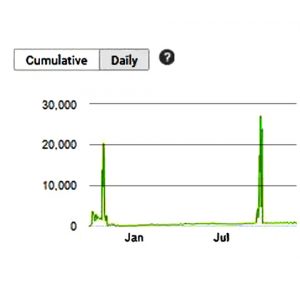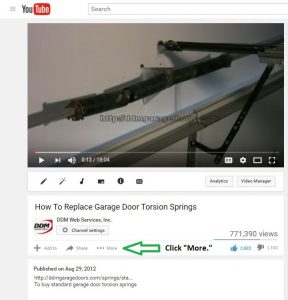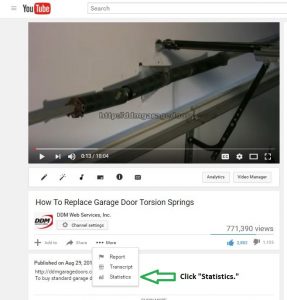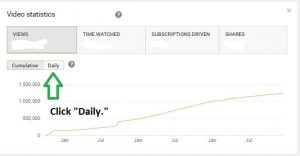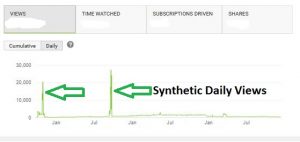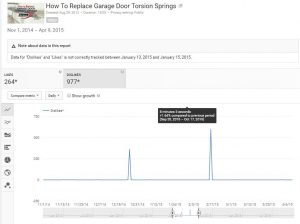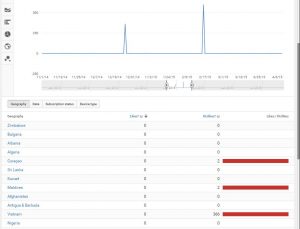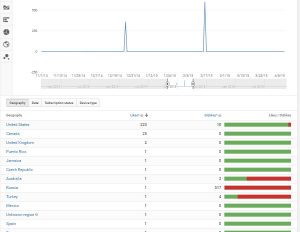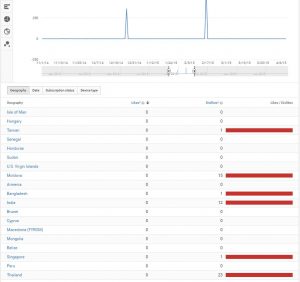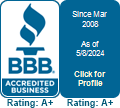Posted November 15th, 2016 at 1:09 pm by Dan Musick
Over the past year, my company – and many others – have been the victims of a disturbing business competition strategy being used by certain disreputable companies, whose aim is to falsely cast their targeted competitors as being “disliked” on public media sites. The goal of this unethical strategy is to harm the target’s online reputation, which has become increasingly vital in today’s technology-driven environment. Unfortunately, this-so called “Click Farm” trend is on the rise. I wanted to write this article to show how you can recognize and avoid sites that use click farms to influence your buying.
What are Click Farms?
“Click farms” are a type of deceptive practice done by people who are trying to gain more followers on Twitter, “likes” on Facebook, artificial views on YouTube, or another form of website in order to gain a higher ranking on a search engine when consumers search for their posts online. Online traffic to the page is simulated to make it appear like actual customers or viewers are clicking on links.
While real people are clicking links, they are not customers. However, they are people who receive pay to do nothing but click on links, browse on the page for a little while, and then move on to the next link. They use fake profiles that appear to be from different geographical locations than where the paid clicker lives. In addition, these click farms do not use the businesses’ services or products. They do not know anything about the services or products offered by the business. In fact, they may be thousands of miles away from the businesses they claim to like or know about.
Boosting traffic to their particular page serves to benefit no one but the person employing the click farms, in getting more people to their page to buy more products, but does nothing to help the customer. It does not help you to find the best products. Nor does it guarantee that they will not cheat you into buying products that will not suit your needs. At DDM, we promise to assist you in finding the parts that will fit perfectly to your particular garage door. Also, we will not talk you into buying something that won’t work for you or that you do not need.
How Click Farms harm business.
Importantly, Click Farms not only harm the target business, but they also harm the businesses that are using them. The reason is that they create an inflated idea of what products you, the customer, actually need. It leads consumers to believe that certain products may be more desirable than others. It leads businesses into stocking more of one product and not another, due to the (wrong) perception based upon the faulty media. This can lead to customers being unhappy because the products they need may not be there because of inflated demand for other products, as well as price discrepancies due to a perceived demand not panning out for the businesses.
Click Farms don’t even help the people getting paid to do it. Click farming does not help you as the customer. Nor, does it benefit the people hired to do the Click Farming. They receive measly wages to sit at a screen clicking for hours to make almost no money per day. By purchasing from companies, or clicking on links to these companies that buy these services, you, the customer, are leading companies to believe that this type of advertising is working. This causes them to continue to pay these click farming companies for their services. In addition, the workers receive almost nothing in pay for their work.
What can be done?
When it comes to Click Farming, knowledge is power! Luckily, some ways can help you to spot this kind of shady behavior to protect yourself from scam artists. Below are ways to spot Click Farming on different social media mediums, such as Facebook, Twitter, and YouTube. We did not cover all social media sites. However, you can take the rules also discussed as a general rule for other sites as well.
How to Spot Possible Click Farm Activity.
Some of this malicious activity is easy to spot, such as comments on YouTube videos. If the comments sound like inane nonsense, then the comments more than likely came from a click farm, or at the very least, from a fake profile. Capitalized letters also indicate a fake profile. Comments that don’t fit in with the content of the video should also be suspect.
Another way to discover this behavior is to check the statistics of a given video. To do this, simply click on the “More” tab under the video.
Next, click the “Statistics” option.
On most videos, the cumulative number of views, which is what Google sees, looks perfectly normal.
If you look at other videos, and if you click the “Daily” option tab, you may find a different story.
View Stream
As you can see on this YouTube video, there are only two specific periods that show a sharp and dramatic increase in the number of views accumulated. While the rest of the time, there is a fairly steady stream of only 50-100 views per day. This is an easy way to spot click farming. Since there’s no logical way that over two short periods tens of thousands of people watched the video every day. Then to later have views dramatically trail off yet again to only 50-100 per day. YouTube, Google, and other pages have been clearly manipulated.
A view stream should look much more like that in the image below from our “How to Replace Garage Door Torsion Springs” video.
At its peak, when Google showcased it as the lead video on a search of garage door springs, the views on our video never reached 1500 per day rather than the more than 25,000 daily views from artificial click farms views. Notice, also, the clear day to day fluctuations over the history of views.
Another way competitors interfere with businesses is by disliking videos to drive people to look elsewhere to buy parts. For example, our “How to Replace Garage Door Torsion Springs” video shows 1,103 thumbs down in the image below. A disproportionate number of dislikes also lowers YouTube and Google rankings. In the image above, notice the decline in late 2014 and early 2015. This decline correlates with the thumbs down views on our YouTube video and the synthetic views on competitors’ videos. This unfairly hurt our spring sales proportionately.
Dislikes
Notice below an increase in spikes on our video, which looks fishy even to an unsophisticated user. In late 2014 and early 2015, there were 977 dislikes posted in these two short periods.
As you can see below, 366 of the thumbs down came from click farms in Vietnam.
And you will also see below that 517 came from Russia.
.
An additional 50 thumbs down came from Moldolvia, India, and Thailand. For years, in these developing countries, click farming is a semi-respectable way to make a living.
Click farms have hot spots in the above-referenced countries. Only 10 of the 977 dislikes during this time period came from the U.S. and Canada. This shows that this video must be helpful in English-speaking countries and that it is generally well received.
Because of the vicious nature of the YouTube environment, we have re-posted this video, our “How to Measure Garage Door Torsion Springs” video, and our other better videos on our own servers.
Click Farming occurs on Facebook and Twitter too.
Facebook and Twitter are less easy to see, but are still harmful and can appear to be much the same. Similar innate comments that don’t often make much sense with the post they are attached to can be ways to spot these kinds of activity. If something seems too good to be true, seems like an ad, or looks like it was typed out by someone who doesn’t know how to use a keyboard, then it probably is the result of click, or “like” farming. They are simply searching for likes for their own malicious purposes. In addition, they are not attempting to alert you to anything that you should be paying attention to.
Twitter click farmers operate in the same way. They get you to click links to things you don’t care about by making them look interesting or grabbing your attention in some way. Even if a page seems like something you like or want to pay attention to, be sure to keep up with the page because it may be changed to suit whatever the creator’s purposes are at the time. In addition, they may use your likes of their posts for advertising their products that you may never have liked in the first place.
Friends and Followers
With friend requests, be sure to be on the lookout for people who you don’t recognize. Also, those who have few friends on their profile, and quite possibly no mutual friends with you. Their biographical information will be almost nothing, even after becoming friends with the person. Leading you to wonder, who is this? And why am I friends with them? These are possibly fake accounts to boost a social media presence by click farmers that are selling to other companies. The same goes for Twitter; if they don’t have many followers, and their followers are no one you know, or very few people you know, they are more than likely a fake profile.
A Call to Arms: Avoid companies that hire click farms!
The best way to find the best products and the best sellers of those products is to look for sellers who don’t use click farming to generate more apparent activity on their pages and videos. Sellers who are honestly seeking to help you, the customer, find what you need know don’t need to use click farming in order to please customers. “Like” farming may not even take you to what you are looking for. However, it may redirect you many times to pages that don’t fit what you are looking for. You should avoid these types of pages, videos, or posts because they do not have your best interest in mind. Also, companies who use shady tactics to influence your buying will usually treat you with shady gimmicks such as upselling.
Buying from ethical companies also benefits you. By allowing the companies which desire to help you find the product that you are looking for. Also, selling you products that suit your needs, you support companies with goals beyond increasing their bottom line.
According to The Guardian’s Charles Arthur, “31% of consumers will check ratings and reviews, including likes and Twitter followers before they choose to buy something.” In checking these ratings, be sure to look out for the pieces of information that can help you to tell whether it is a fake rating or a real review from a customer. As with YouTube comments, if there is innate nonsense in the review, then it is more than likely fake and not produced by a real person. Knowing how to find these signals is very helpful in determining whether or not you will want to buy a product from a particular company. (1)
Being Aware
Companies that employ click farms are also hurt. Once customers hear about the use of click farms, they become skeptical of all numbers of views or likes if they seem high for whatever reason. Or, seeing the high count of views or likes, the customer may be drawn to the page without even thinking about whether or not it is helpful for their needs. (2)
If you’re a company looking to hire a professional who has a broad knowledge of social media, and have judged this by the amount of Facebook friends, Twitter followers, and Instagram followers the person has, then you could be misled as well. They may also be fake, bought so that you, the employer, would be more likely to hire them because of their experience with social media. “If those numbers are fake, you’re wasting money and probably hiring the wrong person” (2). This causes you to be “losing the race for talent,” as Sherman puts it, putting you behind your competitors, and creating a problem for your business.
Being aware of this can help you when buying products, hiring for your business, or just in the general scope of being on social media. It is important to exercise care and caution in picking who to purchase from. Also, who you interact with on social media can help you protect yourself from scammers and others seeking to rip you off.
Citations:
- Arthur, Charles. “How Low-paid Workers at ‘click Farms’ Create Appearance of Online Popularity.” The Guardian. Guardian News and Media, 02 Aug. 2013. Web. 18 July 2016.
- Sherman, Erik. “4 Ways Click Farms Screw Your Business.” Inc.com. Inc., 10 Jan. 2014. Web. 18 July 2016.
This entry was filed under About DDM, News. You can follow any responses to this entry through the RSS 2.0 feed.
